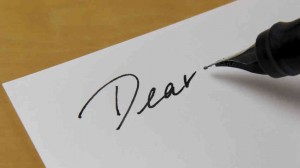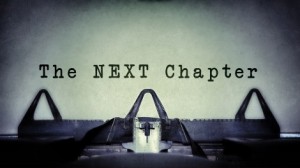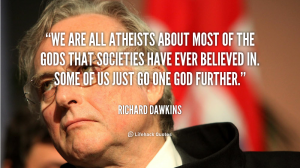[First posted in 2014 under the title: The Great Partnership – 5 – Epilogue. It was the last installment from our Category Must Read/Must Own book by Rabbi Jonathan Sacks. Here are the previous posts:
- Must Read/Must Own – The Great Partnership – Diverging Paths – 3c
- Must Read/Must Own: The Great Partnership – Diverging Paths – 3b
- Must Read/Must Own – The Great Partnership – Diverging Paths 3a
- Must Read/Must Own: The Great Partnership – 2
- Must Read/Must Own: The Great Partnership: Science, Religion, and the Search for Meaning
Epilogue is the finishing touch that is just too good not to feature in one more post. Please refer to earlier posts if you haven’t yet done so and learn much more from Rabbi Sacks by going to his website: http://www.rabbisacks.org/. Reformatted, images and highlights added; what we have omitted are footnotes/references; you will have to get a copy of the book to get those; this is just the ‘bait’. If you can’t find a copy in bookstores, it is downloadable as ebook from amazon.com.—Admin1.]
——————————–
Epilogue: Letter to a Scientific Atheist
Dear Professor,
If you have followed me thus far, you will know I see science as one of the two greatest achievements of the human mind. Its achievements in the past century have been frankly astonishing, revealing a universe on the macro- and micro-scale almost beyond comprehension in its intricacy, detail, variety and complexity, from the universe of a hundred billion galaxies each with a hundred billion stars, to the human body, containing a hundred trillion cells each with a double copy of the human genome with 3.1 billion letters, each enough, if transcribed, to fill a sizeable library of five thousand books.
How right Newton was when he said,
‘I do not know what I may appear to the world, but to myself I seem to have been only like a boy playing on the sea-shore, and diverting myself in now and then finding a smoother pebble or a prettier shell than ordinary, whilst the great ocean of truth lay all undiscovered before me.’
We have seen a little more of the ocean since then, and we have only the dimmest intuition of what we might still discover as Newtons’ heirs voyage yet further across strange seas of thought.
Science fulfills three functions that I see as central to the Abrahamic faith.
- It diminishes human ignorance.
- It increases human power,
- and it exemplifies the fact that we are in God’s image.
God wants us to know and understand. He wants us to exercise responsible freedom. And he wants us to use the intellectual gifts he gave us. These are not reasons why scientists should become religious. They are reasons why religious people should respect scientists.
Yet with knowledge comes power, and with power, responsibility; and we know enough from history to be reasonably sure that responsibility is best exercised when diffused, when thoughtful minds from different disciplines and perspectives engage in respectful conversation as to how best to navigate our way as we travel to that one remaining undiscovered country called the future unknown because unknowable, unknowable because we who make it are free.
My aim in writing this book has not been to convince you. As a Jew I do not believe we are called on to convert anyone. Besides which I come from a religious tradition whose canonical texts are all anthologies of arguments, and which coined the phrase ‘arguments for the sake of heaven’. I recall the public conversation I had with the secular Israeli novelist Amos Oz, who began by saying, ‘I’m not sure I’m going to agree with Rabbi Sacks about everything –but then, on most things I don’t agree with myself.’ (The other typically Jewish remark I cherish is Sidney Morganbesser’s. In reply to the theological question, ‘Why is there something rather than nothing?’ he said, ‘And if there were nothing, you’d also complain!’)
I have tried simply to show you that religious faith is not absurd,
- that it does not involve suspension of our critical faculties,
- that it does not and should not seek to inhibit free pursuit of science,
- that it does not rest on contradiction and paradox,
- that it does not force us to accept suffering as God’s will for the world,
- and that it does not ask us to believe six impossible things before breakfast.
It involves a mode of engagement with the world significantly different from that of science, but not incompatible with it. Least of all does it presume to tell scientists when they are right and when they are wrong. That is a scientific enterprise to be performed by scientific methodologies.
I do not regard atheism as an untenable stance towards the world. I have known some of the great atheists of our time, admired them deeply, and — as I hope I have shown in one or two places in this book — learned much from them, not least about religion itself. We disagreed, but I would not wish to live in a world in which people did not disagree. Disagreement is how knowledge grows. Living with disagreement is how we grow.
Yet I am troubled by the rancour that has entered the debate in recent years. We seem to have moved into an era of extreme and angry voices, of vituperative atheists and militant religious extremists, of people who deny the world of the spirit and who challenge our very freedom, a clash of fundamentalisms that share a refusal to listen openly and intelligently to voices opposed to their own. If carried further, the result will be a world in which, to take Matthew Arnold’s words from ‘Dover Beach’, there is
neither joy, nor love, nor light
Nor certitude, nor peace, nor help for pain;
And we are here as on a darkling plain
Swept with confused alarms of struggle and flight,
Where ignorant armies clash by night.
We can do better than that, even if there are fundamentals on which we disagree.
We are at the end of one chapter of history and are beginning to write the next with no idea of what kind of chapter it will be. We know this, that the end of the Cold War did not bring about the global spread of liberal democracy, the conquest of tyranny in the name of human rights, a greater equality within and between societies, or greater tolerance between conflicting views of the world.
The new communications technologies are changing almost everything we knew and not so long ago took for granted: the nation state, the idea of national cultures, the nature of politics and economics, the character of war and the fragility of peace, the structure of human groups, even, possibly, the architecture of the human brain. We suffer from information overload and attention deficit. The internet makes it hard for us to distinguish between truth and rumour and is the most effective disseminator of paranoia and hatred yet invented.
The challenges humanity faces in the twenty-first century are legion:
- climate change,
- the destruction of biodiversity,
- the responsible use of bio- and nano-technology,
- the extreme vulnerability of the international economy,
- and the power of spectacular acts of terror to achieve that most sought-after commodity in an information-saturated age: the attention of the eyes of the world.
At almost every point, seemingly, we have moved from stable equilibrium to those complex conditions charged by chaos theory, where the beating of a butterfly’s wings can set in motion a tsunami.
We are in a desecularising and destabilising age. That bring fear and few things are worse than the politics of fear. It creates a sense of victimhood and a willingness to demonise those with and from whom we defer. One of its symptoms is the new secularism, so much angrier and intolerant than the old. Another is the new religiosity that claims to be, but is not, a continuation of the old. The best thing to do in such circumstances is for moderates of all sides to seek and find common ground.
In an age of fear, moderation is hard to find and harder to sustain. Who wants to listen to a nuanced argument, when what we want is someone to relieve us from the burden of thought and convince us that we were right all along? So people mock. They blame. They caricature. They demonise. In an age of anxiety few can hear the still small voice that the Bible tells us is the voice of God.
Hence Sam Harris’s argument, mentioned in chapter 13, that the real villains are the religious moderates. Get rid of the moderates, the argument goes, and we can have a fair fight: scientific atheists versus religious Neanderthals. If Sam Harris knew history, he would know the result of such encounters. the barbarians win. They always do.
You do not have to be an atheist to fear the new religiosity. I am a believer, and I too fear it. I fear angry people who invoke God and religion to justify their anger at a world that fails to meet their expectations. I fear religion when it leads believers to brand as heretics anyone whose understanding transcends theirs; when it becomes adversarial, turning its followers against the world instead of trying to mend the world; when it becomes involved in partisan politics, dividing where it ought to unite; and when it leads to tyrannical or totalitarian societies where barbaric punishments are exacted and human rights denied.
There is a difference between righteousness and self-righteousness.
- The righteous are humble, the self-righteous are proud.
- The righteous understand doubt, the self-righteous only certainty.
- The righteous see the good in people, the self-righteous only the bad.
- The righteous leave you feeling enlarged, the self-righteous make you feel small.
- It is easy enough to befriend the former and avoid the latter.
We need moderates, that is, people who understand that there can be a clash of right and right, not just right and wrong. We need people capable of understanding cognitive pluralism, that is, that there is more than one way of looking at the world. We need people who can listen to views not their own without feeling threatened. We need people with humility.
That is why I ask for your understanding. E.O. Wilson wrote his lovely little book about nature conservation. The Creation, as a series of open letters to a Southern Baptist pastor. He explains why:
Because religion and science are the two most powerful forces in the world today, including especially the United States. If religion and science could be united on the common ground of biological conservation, the problem would soon be solved.
Speaking personally, I do not think any real problems are soon solved. The way is too long and hard. But the only way is together. Religion and science, believer and sceptic, agnostic and atheist. For whatever our view of God, our humanity is at stake, and our future, and how that will affect our grandchildren not yet born.
Religion and science share much, but in particular they share faith. This sounds odd. After all, Richard Dawkins is on record as saying;
I think a case can be made that faith, the principled vice of any religion, is one of the world’s greatest evils, comparable to the smallpox virus but harder to eradicate. Faith is a great cop-out.
But that cannot be the full story. Listen to Max Planck, the Nobel Prize-winning physicist and founder of quantum theory:
Anybody who has been seriously engaged in scientific work of any kind realises that over the entrance to the gates of the Temple of science are written the words: Ye must have faith. It is a quality which the scientist cannot dispense with.
Next, Einstein:
But science can only be created by those who are thoroughly imbued with the aspiration toward truth and understanding. This source of feeling, however, springs from the sphere of religion. To this there also belongs the faith in the possibility that the regulations valid for the world of existence are rational, that is, comprehensible reason. I cannot conceive of a genuine scientist without that profound faith. The situation may be expressed by an image, science without religion is lame, religion without science is blind.
Finally, this by Friedrich Nietzsche:
It is still a metaphysical faith upon which our faith in science rests — that even we seekers after knowledge today, we godless anti-metaphysicians, still take our fire, too, from the flame lit by the faith that is thousands of years old, that Christian faith which was also the faith of Plato, that God is the truth, that truth is divine.
Clearly Dawkins means something different by ‘faith’ than do the others. He thinks of faith as a refusal to ask questions. But faith, as Planck, Einstein and Nietzsche understood it is the opposite: the courage and principled determination to go on asking questions despite the fact that there is no easy or immediate answer.
Faith has driven the scientific and religious imaginations along their different paths, but with the same basic refusal to rest content with what we know — with the same non-rational but not irrational willingness to travel to an unknown destination beyond the visible horizon, to attempt dimly to discern an order beneath the seeming chaos, to hear the music beneath the noise.
It is that courage to begin a journey not knowing where it will lead but confident that it will lead somewhere, that there really is a destination, an order, a faint but genuine melody, that is the faith not only of the scientist but of Abraham himself who heard a voice telling him to leave his land, his birthplace and his father’s house, and did so confident that the voice was not an illusion and the destination not a no-man’s-land.
That restless faith, that sacred discontent, that principled iconoclasm, has driven the West to achieve what it has achieved. It is not a cultural universal. Many cultures, having achieved order, have not sought to move ever forwards. The truth is that most religious expressions in the history of humanity have been intensely conservative — here we stand and here we stay. God or the gods have been seen as endorsing the inevitability of the status quo.
The God of Abraham, the voice of the world-that-is-not-yet-but-ought-to-be, the God whose name (‘I will be what I will be’) means the unknowability of the future in a world constituted by freedom, is what scientists call a singularity, a one-off, a unique and world-changing event. And we, whether we are religious or not, are in some sense his heirs.
What might that mean for us, here, now? Oddly enough, the Bible tells us very little about Abraham that might explain why he was chosen for the mission he undertook. It does not call him righteous, as it does in the case of Noah. It does not portray him as a miracle worker, as it does Moses. The only place in the Bible to explain why Abraham was chosen is this verse:
For I have chosen him, so that he will direct his children and his household after him to keep the way of the Lord by doing what is right and just.
This tells us three things about what it is to be an heir of Abraham.
- First, it means that we are the guardians of our children’s future. We must ensure that they have a world to inherit. Today that means political, economic and environmental sustainability.
- Second education — directing our children and our household after us — is a sacred task. Teach children to love, and they will have hope. Teach them to hate, and they will have only anger and the desire for revenge. Thinking about the past leads to war. Thinking about the future helps to make peace.
- Third, how do you keep the way of the Lord? By doing what is right and just. That is the test. If religious people do what is right and just, they are keeping the way. If they do not, then somehow they have lost their way.
I think we can agree on those principles whether we believe in the Lord or not.
In 1779 the German Enlightenment philosopher and art critic Gotthold Lessing wrote a play, Nathan the Wise, that neatly encapsulates the problem of religious conflict and its solution in a way that might be extended to the argument between believer and sceptic.
The play is set up in the twelfth century in the Middle East. The Muslim Sultan Saladin has won a victory against the Crusaders, but it has cost him a great deal and there is an uneasy truce in Jerusalem, with Muslims, Christians and Jews all eyeing one another with suspicion.
He summons Nathan, a leading Jewish merchant, known for his wisdom. ‘Your reputation for wisdom is great,’ says the Sultan. ‘The great religions, Judaism, Christianity and Islam, all contradict one another. They cannot all be true. Tell me then, which is best?’
Nathan recognises the trap immediately. If he says Judaism, he insults the Sultan. If he says Islam, he denies his own faith. If he says Christianity, he offends both. Nathan therefore does the Jewish thing. He tells a story.
There was once, he says, a man who possessed a priceless ring. Its stone was a lustrous opal that refracted light into a hundred colours. But it also had the mysterious power to make its wearer beloved of God and of man. The man passed the ring on to his most cherished son, and so it was handed down, generation after generation.
Finally it was inherited by a man who had three sons, each of whom he loved equally. Unable to choose between them, he secretly commissioned a jeweller to make to exact copies of the ring. On this deathbed, he blessed each son separately, and gave each a ring. Each son believed that he alone possessed the authentic ring.
The man died. After the funeral, one after the other of the sons claimed to be the one to whom their father had entrusted his most precious possession, the ring. There seemed to be no way of resolving the argument because no one could tell which was the original ring. All three were indistinguishable.
Eventually they brought the case before a judge, who heard the story and the history, and examined the rings. ‘The authentic ring, said the judge in his verdict, ‘had the power to make its wearer beloved of God and of man. There is therefore only one way each of you will know whether you have the genuine ring, and that is so to act as to become beloved of God and of man.
‘Bravo,’ said the Sultan to Nathan, and let him go in peace.
Too simple, perhaps, too innocent an example of Enlightenment optimism. But it contains a truth. For if we believe in the God of Abraham, we know we cannot fully know God. We can merely see the effects of his acts. And that surely is true of the children of Abraham. We can see how, given their beliefs, people behave.
If they love and forgive, if they are open to others, if they respect their opponents as well as honouring their fellow believers, if they work for a better world by becoming guardians of the heritages of nature and culture, if they care about the future our grandchildren will inherit but we will not live to see, then they will be beloved of their fellow humans, and they will become true ambassadors of the God who loves those who perform acts of love.
That surely is an act of faith on which religion and science can agree.
Let us join hands and build a more hopeful future.







